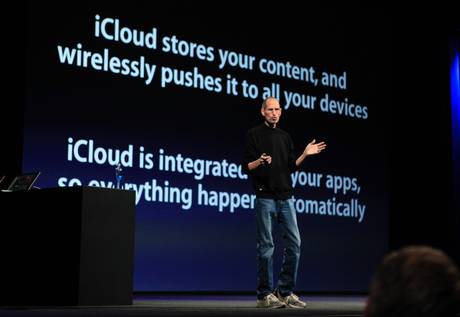Is Apple's iCloud safe? How to create a strong password and turn on two-step verification

Your support helps us to tell the story
From reproductive rights to climate change to Big Tech, The Independent is on the ground when the story is developing. Whether it's investigating the financials of Elon Musk's pro-Trump PAC or producing our latest documentary, 'The A Word', which shines a light on the American women fighting for reproductive rights, we know how important it is to parse out the facts from the messaging.
At such a critical moment in US history, we need reporters on the ground. Your donation allows us to keep sending journalists to speak to both sides of the story.
The Independent is trusted by Americans across the entire political spectrum. And unlike many other quality news outlets, we choose not to lock Americans out of our reporting and analysis with paywalls. We believe quality journalism should be available to everyone, paid for by those who can afford it.
Your support makes all the difference.A recent leak of hundreds of nude and semi-nude photos of celebrities has called into question the security of iCloud, Apple's online back-up service - so are your photos secure?
None of the information regarding the leaks suggests that iCloud itself is unsafe, but that the fault lies with poor password security or manipulation of the account reset feature by the hacker(s).
To check if you're using iCloud on your iOS devices, go to Settings > iCloud to see what information is being shared. You can disable photo-sharing from here.
LIVE: Apple iPhone 6 event
As ever, the advice for creating a secure password is to make it long and to use a mixture of uppercase and lowercase letters, numbers and possibly symbols. Also avoid using any personal information (names, meaningful dates, postal codes, addresses) that could have been found by the hacker.
It's also incredibly important to use different passwords for different accounts - re-using the same passwords means that hackers only have to breach one account (which could happen via corporate incompetence) to access all your online information.
Also consider setting up two-step authentication. This requires any log-ins to your online accounts from new computers to enter an additional code that might be texted, for example, to your mobile. The following services offer two-step authentication:
- Google and Gmail
- Apple iCloud
- Dropbox
- Facebook (Settings > Security > Login Approvals)
- PayPal
- Microsoft
Speaking to The Independent, independent security analyst Graham Cluley said: "Chances are that the hacks are the result of celebrities - or the minions they've hired to handle such things - failing to properly secure their iCloud accounts.
"To better protect your iCloud account, and prevent a hacker from accessing your account, you should enable security measures. You could turn off photo stream sharing and automatic uploading on your iPhone but at the very least, choose a strong, hard-to-guess password that you don't use anywhere else on the internet."
Join our commenting forum
Join thought-provoking conversations, follow other Independent readers and see their replies
Comments